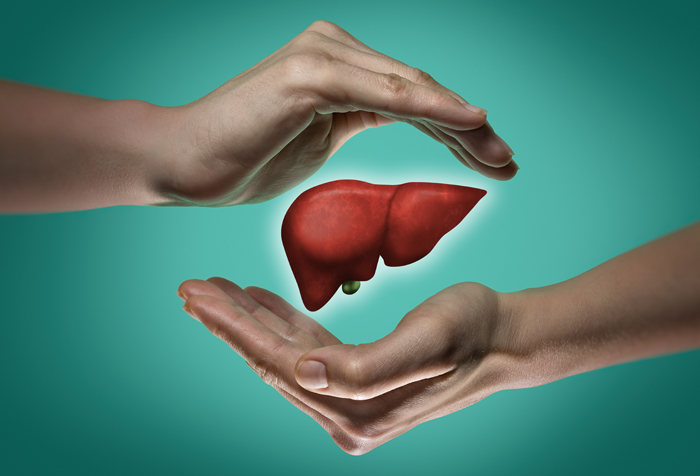Liver Diseases Treatment in Kondapur, Hyderabad
The liver is a football-sized organ. It's located on the right side of your abdomen, directly beneath your ribcage. The liver is responsible for both food digestion and the elimination of toxins from your body.
It is possible to pass on liver illness to your children (genetic). Viruses, alcohol use, and obesity are all examples of conditions that can harm the liver.
Cirrhosis (scarring of the liver) can progress to liver failure, which is a life-threatening disease. Early therapy, on the other hand, may allow the liver to recover.

What Are the Symptoms of Nasal deformities?
Liver illness does not necessarily manifest itself in the form of visible signs and symptoms. If you have liver disease, you may notice the following signs and symptoms:
- Swelling and discomfort in the abdomen
- Yellowing of the skin and eyes (jaundice)
- The urine colour is dark.
- Itchy skin
- Fatigue that lasts a long time
- Appetite loss.
- The hue of the stool is light.
- A proclivity towards bruising
- Vomiting or nausea
When should you see a doctor?
If you have any persistent signs or symptoms that concern you, schedule an appointment with your doctor at Apollo Kondapur. If your stomach discomfort is so terrible that you can't sit still, get medical help right once.
Request an appointment at Apollo Spectra Hospitals, Kondapur
Call 1860-500-2244 to book an appointment
Causes of liver illness?
There are several causes of liver disease.
Infection
Infection of the liver by parasites or viruses can result in inflammation and reduced liver function. Viruses that cause liver disease can be passed from person to person by blood or sperm, contaminated food or water, or intimate contact with an infected person. Hepatitis viruses are the most prevalent cause of liver infection, and they include:
- Hepatitis B
- Hepatitis A
- Hepatitis C
Genetics
A faulty gene passed down from one or both parents can cause a build-up of different chemicals in your liver, resulting in liver disease. The following are examples of genetic liver diseases:
- Hemochromatosis
- Wilson's illness is a condition that affects people.
- Alpha-1 antitrypsin deficiency is a condition in which the body lacks the enzyme alpha-1 antitryp
- Other growths, such as cancer
Here are several examples:
- Cancer of the liver
- Cancer of the bile duct
- Adenoma of the liver
Liver Problems Prevention
To avoid liver disease, do the following steps:
- Consume alcoholic beverages in moderation. For healthy persons, that is one drink per day for women and two drinks per day for males. Heavy or high-risk drinking is defined as more than eight drinks per week for women and more than 15 drinks per week for men.
- Avoid engaging in high-risk activities. During intercourse, use a condom. While getting tattoos or body piercings, be cautious about hygiene and safety when choosing a business. If you're using illegal intravenous drugs, get assistance, and don't share needles.
- Make sure your food is safe. Before eating or preparing food, wash your hands thoroughly. If you're visiting a developing nation, drink bottled water, wash your hands, and brush your teeth.
- Vaccinate yourself. Talk to your doctor about receiving the hepatitis A and B vaccinations if you're at a higher risk of acquiring hepatitis or if you've previously been infected with any type of the hepatitis virus.
The liver is the body's largest solid organ, yet it's also a gland since it produces and secretes bile, among other things. The liver is protected by the rib cage in the upper right part of the abdomen. It contains two major lobes, each of which is made up of many little lobules. The liver cells receive blood from two distinct sources. The hepatic artery transports oxygen-rich blood from the heart to the liver, whereas the portal vein transports nutrients from the gut and spleen.
The liver is involved in a variety of biological activities, including protein synthesis and blood clotting, as well as cholesterol, glucose (sugar), and iron metabolism.
Cirrhosis, alcohol misuse, hepatitis A, B, C, D, and E, infectious mononucleosis (Epstein Barr virus), nonalcoholic fatty liver disease (NASH), and iron overload are only a few illnesses and disorders that can damage the liver (hemochromatosis).
Weakness and exhaustion, weight loss, nausea, vomiting, and a yellow tint of the skin are all symptoms of liver disease (jaundice).
The therapy for liver illness is determined by aetiology.
Symptoms
Our Top Specialities
NOTICE BOARD
CONTACT US
CONTACT US
 Book Appointment
Book Appointment


.svg)
.svg)
.svg)
.svg)








